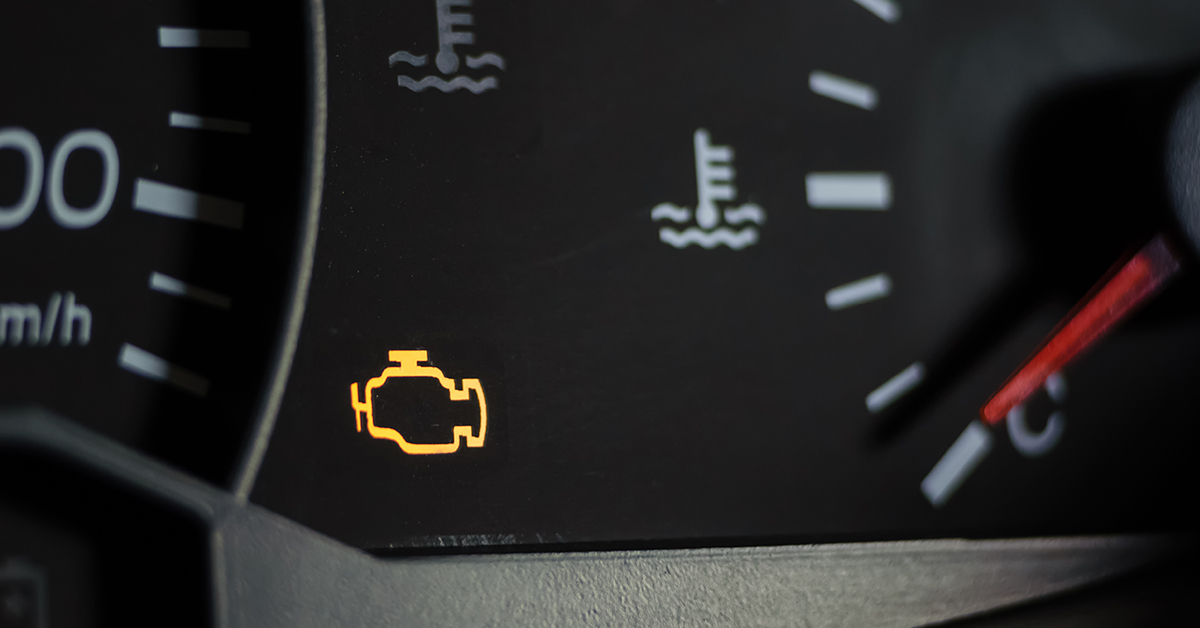For a Subaru owner, there can be very few issues that can compare to a failing engine. Even the esteemed Boxer engine is not immune to the wear and tear that comes with age. Luckily, there are sure telltale signs that your Subaru's engine may be in trouble.
We've compiled a list of the 10 biggest symptoms of a failing engine. Catch them early enough, and you can save yourself quite a bit of money down the road.
1. The Check Engine Light Comes On
This one is simple enough. A dashboard's indicator lights signal that something is amiss with your vehicle. The check engine light is no exception. Ignore it, and you can risk further damaging your vehicle.
There are many reasons why your vehicle's check engine light will turn on. Some are easy to fix - such as a loose gas cap - while others will need the attention of an experienced auto tech, such as a damaged catalytic converter. Just know that the issue is certainly more severe if your check engine light is blinking.
2. Decreased Performance
An easy indicator of engine problems is decreased performance. This often comes in the form of stalling, shaking at high speeds, and struggling to climb hills.
3. The Engine Makes Strange Sounds
This is a big one. If you hear a knocking noise coming from your engine, this is a clear sign of trouble. This can be caused by wear or damage to the engine's pistons, bearings, or other moving parts. Ignore this, and you'll risk breaking down on the side of the road.
Other noises to pay attention to include popping, spitting, and backfiring from your exhaust.
4. Rough or Inconsistent Performance
This one piggybacks off the last two points. When you listen to the sound your engine makes as you drive, you'll want to pay attention to whether it's consistent. Any inconsistencies in sound or overall performance are important to note. They can result from is-sues with spark plugs, the ignition coils, fuel pressure, or your vehicle's Air Flow Meter.
5. A Bad Odor Inside the Vehicle
The rule of thumb is you should never smell your vehicle's emissions from inside the cabin. If you do notice a strong exhaust smell or that of engine fumes or anything unfamiliar, do not ignore it. This could be a sign of engine damage and should be checked out as soon as possible.
6. There's an Oil Leak
While an oil leak is not necessarily indicative of a major issue, it's always important to get them taken care of. If you notice a few drops of oil on the ground after your vehicle has been parked for a while, this can likely be a sign of a worn seal.
However, if you notice a big puddle of oil sitting underneath your vehicle, this can signify something much more severe, like a crack in your engine block. Whatever the case, you'll want to get the issue fixed, and the oil replenished soon. Otherwise, you risk moving engine parts to rub together without the proper lubrication.
7. Overheating
It should go without saying that an overheating engine is never a good thing. Typically, the vehicle's cooling system will keep the engine at the right temperature. However, if the engine winds up running too hot, it can ultimately become irreparably damaged. If the engine temperature light comes on as you're driving, pull over immediately and call for a tow.
8. You End Up Using More Fuel
If you notice that your vehicle is using more fuel than expected, you'll want to get it checked out by an auto professional. This is often because there is an issue related to how your engine processes fuel. Combine this with an illuminated check engine light on top of other engine issues, and you're looking at a much more severe problem.
9. Smoke Is Coming from Your Exhaust
Smoke coming from your exhaust is never a good sign. What complicates the matter is the color of the smoke. The color is often an indication of a specific issue.
Black smoke is a sign of incomplete combustion, which leads to too much fuel being burned. Gray smoke can be the result of other different reasons. These include either a stuck PCV valve or transmission fluid issues. Dark blue smoke is a sign of your engine burning oil due to oil leaking into its combustion chamber.
10. Milky White Oil
This one requires you to open up the hood and check the physical state of your oil. Once you remove the dipstick, you'll be able to determine not only the level at which your oil presently sits but also its appearance.
If you notice that your oil is milky white in appearance, this can indicate that your coolant is leaking into your engine. This is likely the result of a worn gasket and should be checked out immediately.
So, there you have it, folks. If you happen to live in the Salt Lake area and are experiencing any of these 10 symptoms, give us at Aposhian a call. We'll be able to diagnose the issue and get you back on the road in no time.
When using Aposhian Garage, you have not only had your Subaru properly maintained, but you have also found your Subaru repair “home.”
We look forward to getting to know you and your vehicle!



